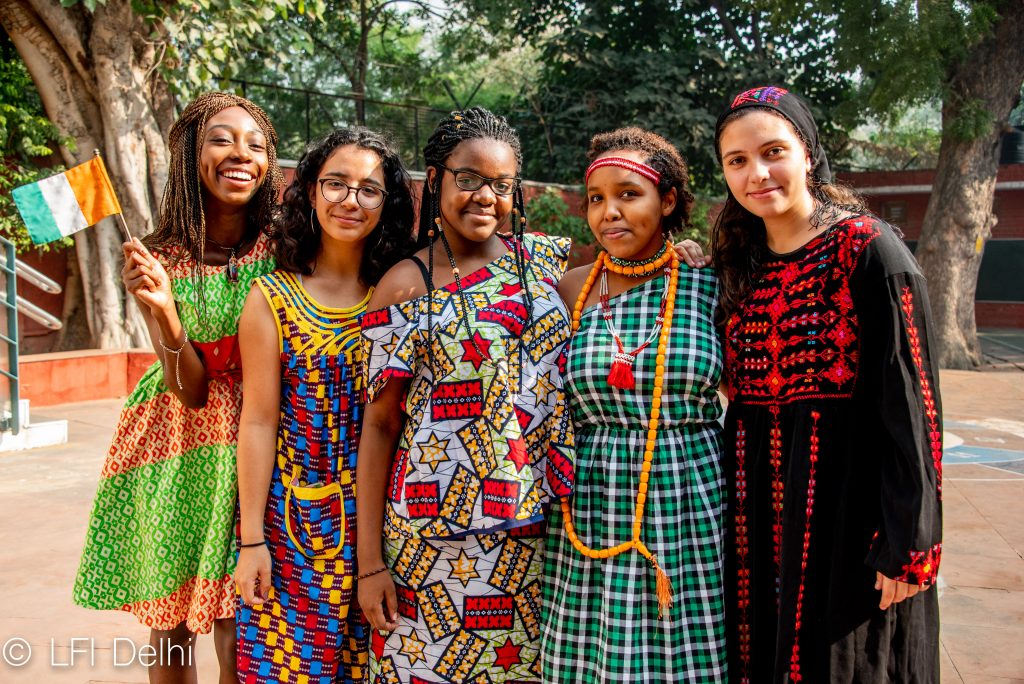
Specific program for non francophone students
We work hard to ensure that every child is comfortable at school and among their friends, both in French and English.
Non French speaking students are welcome to enroll at LFID in all the classes, ranging from Petite Section (Kindergarten classes) upto troisième (ninth grade). An entrance test is conducted to simply assess the level of the student in French in order to place the student in a suitable language learning group.
This facility that the French International School offers is called the ‘programme FLSco- Français Langue de scolarisation’ (French Language of Schooling Program). It consists of a customized program, carefully created by specialized French language teachers, working in close coordination with the other teachers involved with the student’s schooling. This program enables the students to swiftly and efficiently acquire the language skills required to integrate the “mainstream” class.
Students study, according to their requirements, several hours per week, during class hours itself, within a group comprising of a maximum number of four students, in order to learn or improve their French language skills.
This support program is provided to the student until the student has acquired a sufficient level of French knowledge in order to be fully at ease with French. Meetings are regularly held between parents and teachers in order to assess the progress made and to readjust, if need be, the support provided.
CBSE,ICSE or other secondary, intermediate or pre-university educational establishments recognized by the Republic of India.
Language educational approaches are diverse and depend upon the age of the student: for early, young learners, the approach is play-based and multi-sensorial. For students in higher classes, they are based on a task based approach, maximizing authentic language learning situations.

